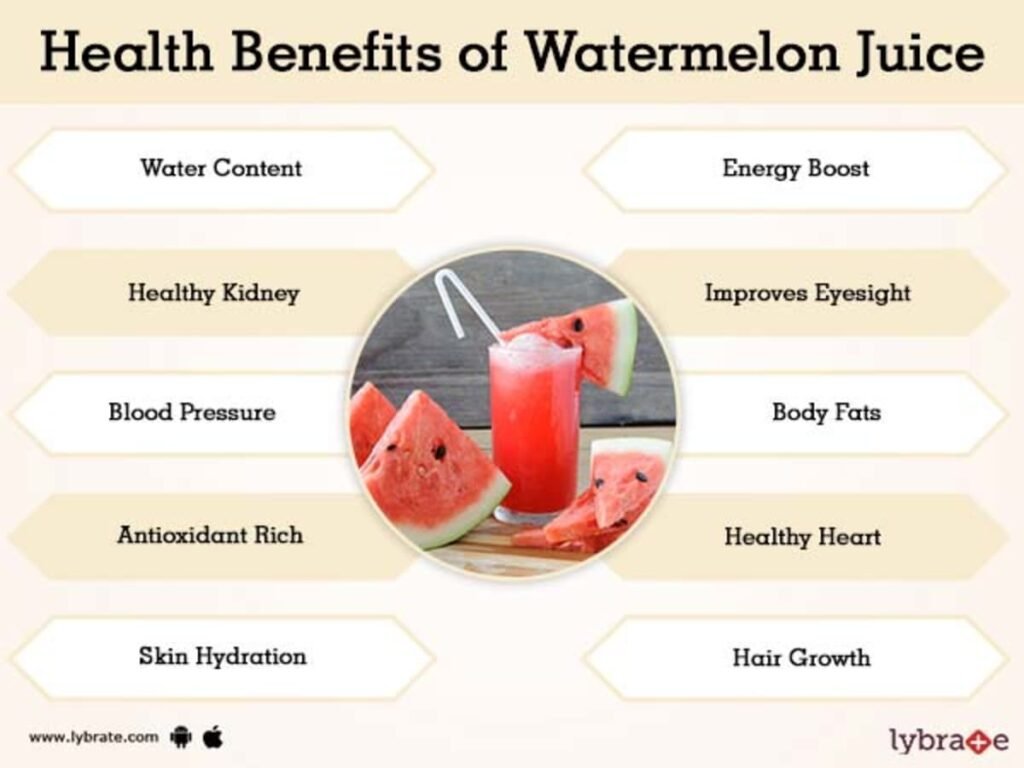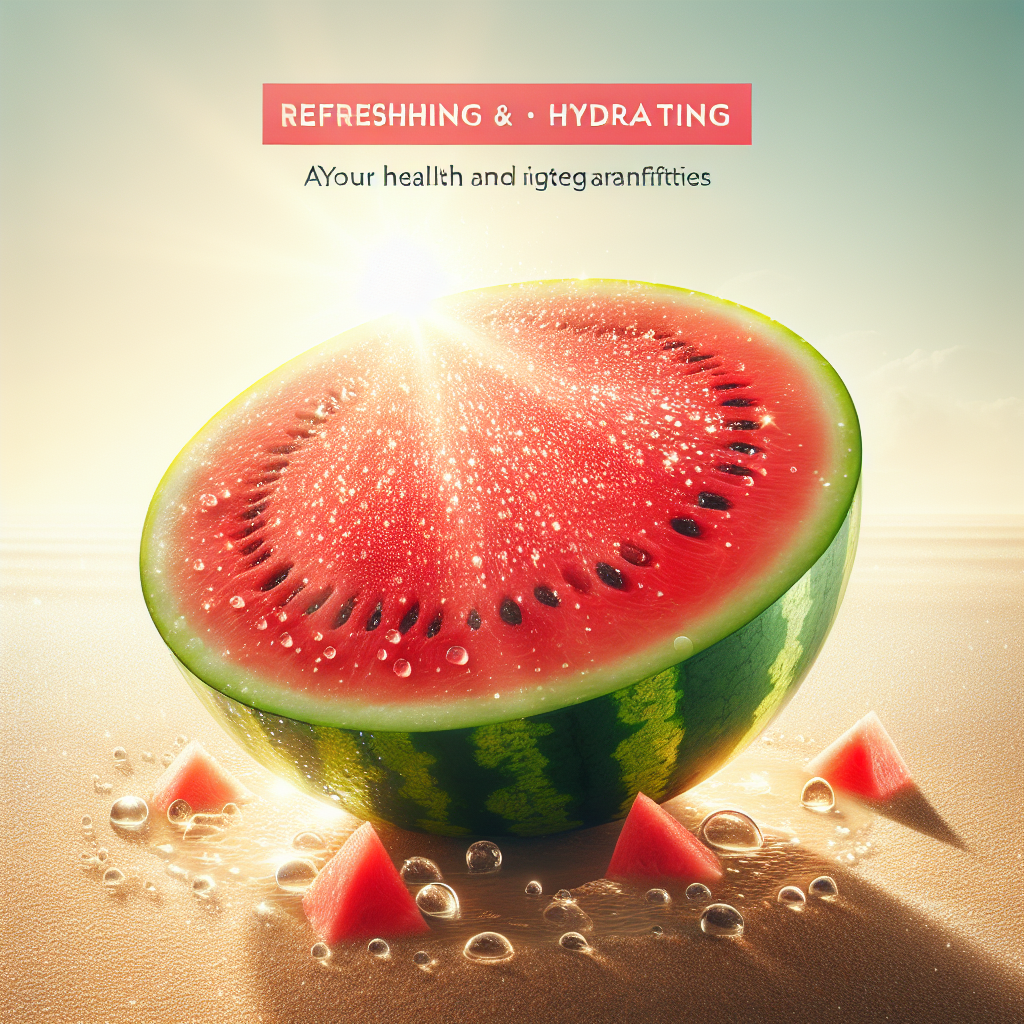Ah, the sweet and juicy watermelon, nature’s very own hydrating gift on a hot summer day. But did you know that this delectable fruit has more to offer than just a burst of refreshing flavors? Packed with essential vitamins, minerals, and antioxidants, watermelon boasts an impressive array of health benefits. From promoting healthy digestion to aiding in hydration, this delightful fruit is truly a powerhouse of wellness. So, grab a slice, bask in its vibrant colors, and let’s uncover the incredible health benefits hidden within this mighty melon!
Watermelon: A Refreshing Summer Fruit
Watermelon: the perfect summer treat
nothing screams summer quite like a juicy slice of watermelon. With its vibrant colors, refreshing taste, and high water content, watermelon is the perfect fruit to enjoy on a hot summer day. Whether you’re enjoying a picnic at the beach or hosting a backyard barbecue, watermelon is a crowd-pleaser that will quench your thirst and satisfy your summertime cravings.
A brief history of watermelon
Watermelon has a rich history that dates back thousands of years. Originating from the Kalahari Desert in Africa, watermelon quickly spread across the globe, becoming a beloved fruit in many cultures. In ancient Egypt, watermelon was even used as a form of currency and was buried with pharaohs as a symbol of nourishment in the afterlife. Today, watermelon is cultivated in countless countries, making it an accessible and widely enjoyed fruit worldwide.
The various types of watermelon
When it comes to watermelon, there is a wide variety of options to choose from. From the classic seeded watermelon to seedless varieties, there is a type of watermelon to suit everyone’s preference. Seedless watermelons, for example, are often favored for their convenience, while heirloom varieties are celebrated for their unique flavors and textures. No matter which type of watermelon you choose, you’re sure to be delighted by the burst of flavors and juicy goodness that awaits inside.
Watermelon: a nutrient-rich fruit
Watermelon isn’t just a tasty treat; it’s packed with essential nutrients that can benefit your overall well-being. This refreshing fruit is a great source of vitamins and minerals, making it a guilt-free snack choice. From promoting hydration to improving heart health, watermelon offers a multitude of health benefits that contribute to a balanced and nourishing diet.
Hydration and Cooling Properties
Watermelon: the ultimate thirst quencher
When the sun is beating down, and you’re in desperate need of refreshment, look no further than watermelon. With its high water content, watermelon is an excellent source of hydration, helping to quench your thirst on those scorching summer days. Staying hydrated is crucial for maintaining optimal bodily functions, and watermelon can be a delicious and satisfying way to meet your hydration needs.
The hydrating benefits of watermelon
Alongside its thirst-quenching properties, watermelon is also incredibly hydrating. This fruit consists of over 90% water, making it an ideal snack to combat dehydration. Staying properly hydrated is essential for numerous bodily functions, including regulating body temperature, promoting healthy digestion, and supporting cognitive function. Incorporating watermelon into your diet is an excellent way to ensure you stay hydrated all summer long.
Watermelon: a natural cooling agent
There’s no denying the relief that comes with biting into a crisp and juicy slice of watermelon on a sweltering day. Watermelon has a natural cooling effect on the body, helping to lower body temperature and provide a refreshing respite from the heat. The combination of high water content and electrolytes in watermelon makes it an excellent fruit for staying cool and beating the summer heat.
Watermelon: a summer essential
With its hydrating and cooling properties, watermelon truly shines as a summer essential. Whether you’re lounging by the pool, attending a barbecue, or embarking on a summertime adventure, having watermelon on hand is a must. Not only will it keep you refreshed and hydrated, but it also satisfies your sweet tooth without any guilt. So, why not make watermelon a staple in your summer routine?
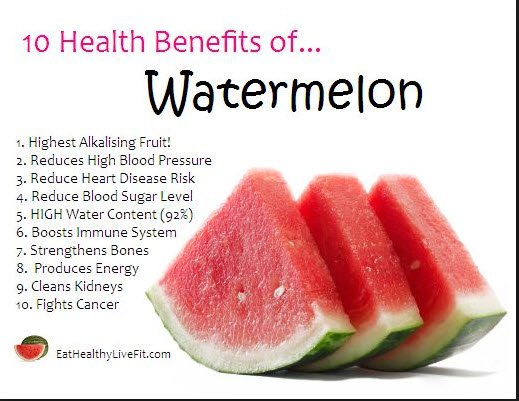
Rich in Essential Vitamins
Vitamin C: boosting the immune system
Watermelon is a nutritional powerhouse, especially when it comes to essential vitamins. One of the standout vitamins found in watermelon is vitamin C. Known for its immune-boosting properties, vitamin C plays a vital role in maintaining a healthy immune system. By consuming watermelon regularly, you can give your body a natural defense against common illnesses and ensure your immune system is functioning optimally.
Vitamin A: promoting healthy skin and vision
In addition to vitamin C, watermelon also contains a significant amount of vitamin A. This essential vitamin is crucial for maintaining healthy skin and promoting good vision. Vitamin A acts as an antioxidant, protecting your skin from damage caused by environmental factors, such as sun exposure. Additionally, vitamin A supports the health of your eyes, helping to prevent vision problems and maintaining optimal eye function.
Vitamin B6 and B1: supporting brain health
Watermelon is not only refreshing; it’s good for your brain too! This delicious fruit contains vitamins B6 and B1, both of which are essential for maintaining cognitive health. Vitamin B6 aids in the production of neurotransmitters, which are vital for proper brain function. Vitamin B1, also known as thiamin, contributes to the overall health of your nervous system, improving memory and concentration.
Vitamin B5: aiding energy metabolism
Another important vitamin found in watermelon is vitamin B5, also known as pantothenic acid. This vitamin plays a crucial role in energy metabolism, helping to convert the food you eat into usable energy. By incorporating watermelon into your diet, you can ensure your body has an adequate supply of vitamin B5, supporting overall energy levels and preventing feelings of fatigue.
Powerful Antioxidants
Lycopene: a potent antioxidant for heart health
Watermelon is one of the best dietary sources of lycopene, a powerful antioxidant that provides numerous health benefits. Lycopene has been shown to promote heart health by reducing the risk of cardiovascular diseases. This antioxidant helps protect against oxidative damage, prevents the oxidation of LDL cholesterol, and maintains healthy blood vessel function. By consuming watermelon regularly, you can support your heart health and reduce the risk of heart-related conditions.
Beta-carotene: protecting against oxidative stress
Watermelon is also rich in beta-carotene, another antioxidant that contributes to its vibrant red color. Beta-carotene is converted into vitamin A in the body and acts as an antioxidant, protecting your cells from oxidative stress caused by harmful free radicals. By including watermelon in your diet, you can benefit from the antioxidant properties of beta-carotene and reduce the risk of chronic diseases associated with oxidative damage.
Citrulline: promoting cardiovascular health
One unique compound found in watermelon is citrulline, an amino acid that contributes to various health benefits. Citrulline plays a crucial role in promoting cardiovascular health by relaxing blood vessels, reducing blood pressure, and improving blood flow. By consuming watermelon, you can naturally increase your citrulline intake, supporting optimal heart health and reducing the risk of heart-related conditions.
Phenolic compounds: fighting inflammation
Watermelon contains various phenolic compounds, such as flavonoids and triterpenoids, which possess potent anti-inflammatory properties. These compounds help reduce inflammation in the body, which is a common underlying factor in many chronic diseases. By incorporating watermelon into your diet, you can benefit from these anti-inflammatory compounds and potentially lower the risk of developing diseases related to chronic inflammation.
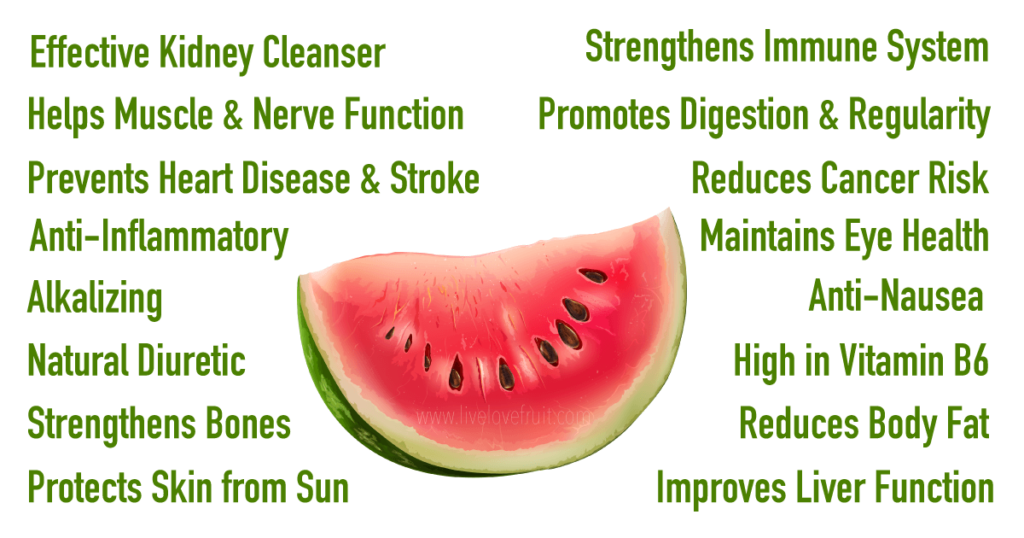
Hydrating Electrolytes
Potassium: maintaining fluid balance
Electrolytes are essential for maintaining proper hydration and fluid balance in the body, and watermelon is a natural source of these vital nutrients. One electrolyte found in watermelon is potassium. This mineral plays a crucial role in regulating fluid balance, muscle contractions, and nerve functions. By enjoying watermelon, you can replenish potassium levels and support proper hydration, especially during hot summer days or after physical activity.
Magnesium: supporting muscle function
Watermelon also contains magnesium, another essential electrolyte that contributes to various bodily functions, particularly muscle function. Magnesium helps relax muscles, prevent muscle cramping, and supports proper muscle and nerve function. By including watermelon in your diet, you can ensure your body has an adequate supply of magnesium, promoting healthy muscle function and aiding in post-exercise recovery.
Calcium: promoting bone health
Calcium is an essential mineral for maintaining strong and healthy bones, and watermelon provides a small but valuable amount of this nutrient. While watermelon is not a significant source of calcium compared to dairy products or leafy greens, every bit counts towards meeting your daily calcium needs. By including watermelon as part of a well-balanced diet, you can contribute to overall bone health and support proper bone formation.
Sodium: aiding nerve transmission
Sodium is another electrolyte found in watermelon that plays a crucial role in aiding nerve transmission and maintaining proper fluid balance. While watermelon is not high in sodium, it can still contribute to your overall sodium intake. Sodium is necessary for regulating blood pressure and supporting optimal nerve and muscle function. Enjoying watermelon as a hydrating snack can provide a small but valuable amount of sodium to support your body’s needs.
Digestive Health Benefits
Dietary fiber: aiding in digestion
maintaining a healthy digestive system is essential for overall well-being, and watermelon can contribute to better digestion thanks to its dietary fiber content. While watermelon is not particularly high in fiber compared to other fruits or vegetables, every little bit helps. Fiber promotes regular bowel movements, prevents constipation, and supports a healthy gut microbiome. By incorporating watermelon into your diet, you can contribute to a balanced and efficient digestive system.
Watermelon: a natural diuretic
Watermelon has natural diuretic properties, meaning it promotes increased urine production. While this may not seem desirable, it can actually be beneficial for your body’s natural detoxification processes. By increasing urine production, watermelon aids in flushing out toxins and waste products, helping to cleanse your kidneys and maintain proper kidney function. Just be sure to stay hydrated when enjoying watermelon’s diuretic effects to prevent dehydration.
Promoting regular bowel movements
The hydration and fiber content of watermelon can contribute to better digestion and regular bowel movements. Staying hydrated ensures proper digestion and prevents symptoms of constipation. Additionally, the dietary fiber in watermelon adds bulk to your stool and helps promote regularity. By adding watermelon to your diet, you’re providing your body with a hydrating and fibrous fruit that can aid in maintaining a healthy digestive system.
Reducing the risk of constipation
Constipation can be uncomfortable and lead to various digestive issues. Fortunately, watermelon can help alleviate the risk of constipation due to its high water and fiber content. Watermelon contains both soluble and insoluble fiber, which adds bulk to the stool and helps soften it, making it easier to pass. By enjoying watermelon regularly, you can help prevent constipation and maintain a healthy digestive system.
Promoting Heart Health
Watermelon: a heart-healthy fruit
When it comes to heart health, watermelon is a delicious and nutritious choice. Its rich antioxidant content, particularly lycopene, contributes to protecting cardiovascular health. By reducing oxidative stress and preventing the oxidation of LDL cholesterol, watermelon helps maintain healthy blood vessels and lowers the risk of heart-related conditions. Enjoying watermelon can be a sweet way to support your heart and overall cardiovascular function.
Regulating blood pressure
High blood pressure, or hypertension, is a significant risk factor for heart disease. Fortunately, watermelon can play a role in regulating blood pressure levels due to its citrulline content. Citrulline helps relax blood vessels, allowing for better blood flow and lower blood pressure. By incorporating watermelon into your diet, you can help maintain healthy blood pressure levels and reduce the risk of hypertension.
Lowering cholesterol levels
High cholesterol levels can contribute to the development of cardiovascular diseases. The lycopene and other antioxidants found in watermelon have been shown to help lower LDL cholesterol levels, commonly known as “bad” cholesterol. By reducing the oxidation of LDL cholesterol, watermelon contributes to a healthier lipid profile and a lower risk of cholesterol-related conditions. Including watermelon as part of a balanced diet can support your heart health by helping maintain optimal cholesterol levels.
Improving overall cardiovascular function
The combination of antioxidants, citrulline, and other beneficial compounds found in watermelon makes it an excellent choice for improving overall cardiovascular function. From reducing oxidative stress and inflammation to promoting healthy blood vessels and regulating blood pressure, watermelon offers a holistic approach to supporting heart health. By enjoying watermelon regularly, you can give your heart the nourishment it needs to thrive.
Boosting Immune System
Watermelon: a vitamin C powerhouse
When it comes to supporting your immune system, vitamin C is a key player. Watermelon is packed with this essential vitamin, making it a natural choice for boosting your immune system. Vitamin C plays a vital role in the production of white blood cells, which are responsible for fighting off infections and supporting your immune defenses. By incorporating watermelon into your diet, especially during cold and flu season, you can give your immune system the extra support it needs.
Enhancing immune cell function
In addition to its vitamin C content, watermelon contains various antioxidants and nutrients that can enhance immune cell function. The powerful antioxidants found in watermelon, such as lycopene and beta-carotene, help protect immune cells from oxidative damage, ensuring they can function optimally in defending against harmful pathogens. By enjoying watermelon regularly, you can contribute to a stronger immune system and better overall health.
Fighting against common illnesses
Watermelon’s immune-boosting properties make it an excellent fruit for fighting against common illnesses. Whether it’s the common cold, flu, or other viral infections, watermelon’s abundance of vitamins, antioxidants, and hydration can help support your body’s natural defense mechanisms. By incorporating watermelon into your diet, you’re providing your immune system with the nutrients it needs to stay strong and resilient against illness.
Supporting wound healing
Vitamin C, found abundantly in watermelon, is essential for wound healing. This essential vitamin plays a crucial role in collagen production, a protein that helps repair and rebuild damaged tissues. By including watermelon in your diet, you can increase your vitamin C intake and promote faster wound healing. So, next time you have a minor cut or scrape, consider enjoying some juicy watermelon to support your body’s healing process.
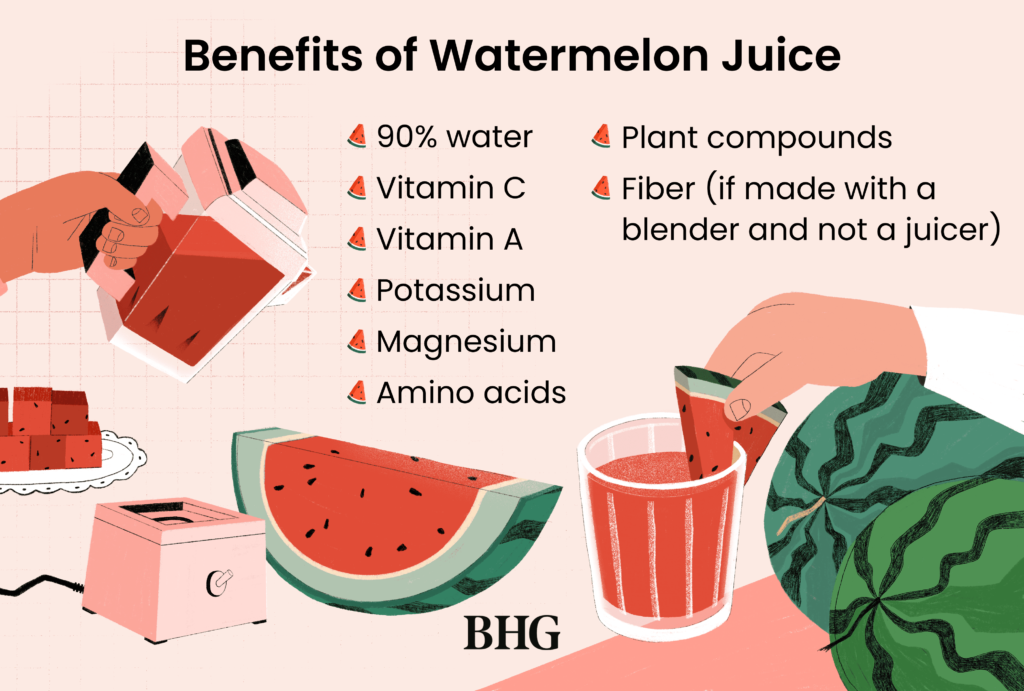
Weight Management
Watermelon: a low-calorie fruit
If you’re looking to maintain or lose weight, watermelon can be an excellent addition to your diet. With its high water content and low calorie density, watermelon allows you to indulge in a sweet treat without consuming excessive calories. Compared to other fruits or desserts, watermelon provides a satisfying and hydrating experience while keeping your calorie intake in check.
High water and fiber content
Watermelon’s high water and fiber content contribute to its weight management benefits. The water in watermelon adds volume to the fruit, helping you feel fuller for longer and reducing the likelihood of overeating. Additionally, the fiber in watermelon adds bulk to your diet without adding extra calories, aiding in satiety and promoting healthy digestion.
Promoting satiety and reducing cravings
By incorporating watermelon into your meals or snacks, you can promote feelings of satiety and reduce cravings for high-calorie, less-nutritious foods. The combination of water and fiber in watermelon helps keep you satisfied for longer periods, preventing excessive snacking or overindulgence. Enjoying watermelon as part of a balanced diet can be an effective strategy for managing your weight and supporting overall health.
Incorporating watermelon into a balanced diet
While watermelon can be a refreshing and low-calorie snack on its own, it can also be incorporated into various dishes to enhance both flavor and nutritional value. Consider adding diced watermelon to salads, blending it into smoothies, or using it as a topping for yogurt or oatmeal. By getting creative with watermelon, you can enjoy its weight management benefits while still enjoying a diverse and balanced diet.
Athletic Performance and Recovery
Watermelon: a natural sports drink
When it comes to athletic performance and recovery, proper hydration and replenishment of electrolytes are crucial. Watermelon can act as a natural sports drink, providing fluid and essential electrolytes needed for optimal athletic performance. As a hydrating fruit with a high-water content, watermelon can help prevent dehydration and support endurance during physical activity.
Replenishing electrolytes and fluids
Physical activity leads to the loss of electrolytes and fluids through sweat. Watermelon’s natural combination of water and electrolytes, such as potassium and magnesium, makes it an ideal choice for replenishing these essential nutrients post-workout. By enjoying watermelon after exercise, you can help restore electrolyte balance and aid in proper muscle function and recovery.
Reducing post-exercise muscle soreness
The amino acid citrulline found in watermelon has been shown to reduce muscle soreness and aid in post-exercise recovery. Citrulline helps improve blood flow, delivering oxygen and nutrients to your muscles for faster repair and recovery. By incorporating watermelon into your post-workout routine, you can potentially reduce muscle soreness and enhance your overall exercise performance.
Enhancing exercise performance
Watermelon contains a variety of nutrients, such as vitamins, minerals, and antioxidants, that can enhance exercise performance. These nutrients support overall energy production, muscle function, and recovery, allowing you to perform at your best. By fueling your body with the natural goodness of watermelon, you can optimize your workouts and achieve your fitness goals.
In conclusion, watermelon is more than just a delicious summer fruit. It offers a multitude of health benefits, ranging from promoting hydration and supporting heart health to boosting the immune system and aiding in weight management. With its high water content, essential vitamins, powerful antioxidants, hydrating electrolytes, and digestive health benefits, watermelon is truly a refreshing and nutritious choice for everyone. So, next time you’re feeling the heat of summer or seeking a healthy snack option, reach for a slice of juicy watermelon and savor its many benefits.
